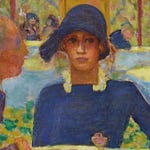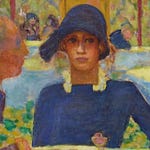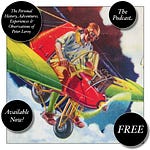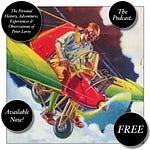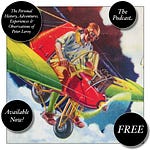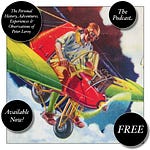67
TOWARD THE END of that year, another of her letters reached me, one she had mailed before leaving Istanbul:
Dear Peter,
I’ve decided that my past and I have an inseparable relationship . . . but a flexible one. The things in my past are like a child’s bag of blocks . . . but it occurs to me that my mother would have said “a bag of groceries,” so I will, too. There is no reason at all why I should reach in and eat them as they are, raw and dirty. I can cook. Many different dishes can be made from the raw ingredients of my past. The past is prologue, and the prologue to a recipe is the list of ingredients at the top, and cooking is not like fresco-painting, where “erasures are not allowed.” It’s more like writing, where the power of revising allows you to scratch things out, touch things up, rearrange it all to suit yourself. The past turns out to be much more amenable to manipulation than most of us think—more like chowder than fresco. You can cheat! As my mother said, “Every cook is a bit of a fraud, a con artist—we make things taste better than they really do.” I don’t have to take everything life has put in front of me. I can make a selection. If tomatoes made me break out in hives (they don’t, but suppose that they did) I could make my chowder without them, eat it, and enjoy it. Most people don’t know this. They think they’re stuck with themselves. One of my pursuers said to me, while we were drinking tea in the lobby of a rather nice hotel here, that a person really only gets three big choices in life (or three strikes, or three mistakes) and when you’ve made them your life is defined, like a plane. I said, “What a lot of crap!” and she threw her napkin down, got up in a huff, and stormed out of the lobby. Well, I realized that this had been her little pet theory about life, so I ran after her to try to apologize for calling it a piece of crap, but my running after her just made her flee all the faster, and even though I wanted her to stop following me I didn’t want her to think ill of me, so I kept pursuing her and calling her name, and she ran right out into the street, where she tripped and fell right into the gutter. She was a mess, and people burst out laughing, and the poor woman suddenly burst into laughter at herself! For a moment I thought that we might become friends, on the strength of this surprising ability to abstract herself from herself and laugh at herself, but just then she was hit by a bus. So that’s another one gone. Oh, she’s not dead! I didn’t mean that. She wasn’t hurt badly at all. The bus didn’t really hit her, just nearly hit her, and shook her up, made her reconsider her life, and she’s decided to quit the chase. Do you see the lesson here? I hope I can learn to laugh at myself someday, but then I have many hopes for myself. Hope springs eternal, “the thing with feathers that perches in the soul, and sings the tune without the words, and never stops at all.” It’s a kind of narcotic. I know that I start something new with that obfuscating expectation of success that blinds me to the difficulties and my fears, and it’s the effect of that treacherous narcotic, hope. I remember a man who loved his wife, his dying wife, so much that he forced himself to hope when he was hopeless and desperate. I remember him standing at a window and administering hope to her, turning her eyes toward the future—because the dying, if they think of themselves as dying, have a life that is all present, and a life lived in the present is utterly hopeless—and she gave back to him every ounce of hope that he gave her, compounded, made him believe that he was succeeding, that he was deceiving her, and they sailed the strangest sea, intoxicated by it.
Love, Ariane
[to be continued]
Have you missed an episode or two or several?
You can begin reading at the beginning or you can catch up by visiting the archive or consulting the index to the Topical Guide. The Substack serialization of Little Follies begins here; Herb ’n’ Lorna begins here; Reservations Recommended begins here; Where Do You Stop? begins here; What a Piece of Work I Am begins here.
You can listen to the episodes on the Personal History podcast. Begin at the beginning or scroll through the episodes to find what you’ve missed. The Substack podcast reading of Little Follies begins here; Herb ’n’ Lorna begins here; Reservations Recommended begins here; Where Do You Stop? begins here; What a Piece of Work I Am begins here.
You can listen to “My Mother Takes a Tumble” and “Do Clams Bite?” complete and uninterrupted as audiobooks through YouTube.
You can ensure that you never miss a future issue by getting a free subscription. (You can help support the work by choosing a paid subscription instead.)
At Apple Books you can download free eBooks of Little Follies, Herb ’n’ Lorna, Reservations Recommended, and Where Do You Stop?
You’ll find overviews of the entire work in An Introduction to The Personal History, Adventures, Experiences & Observations of Peter Leroy (a pdf document), The Origin Story (here on substack), Between the Lines (a video, here on Substack), and at Encyclopedia.com.





